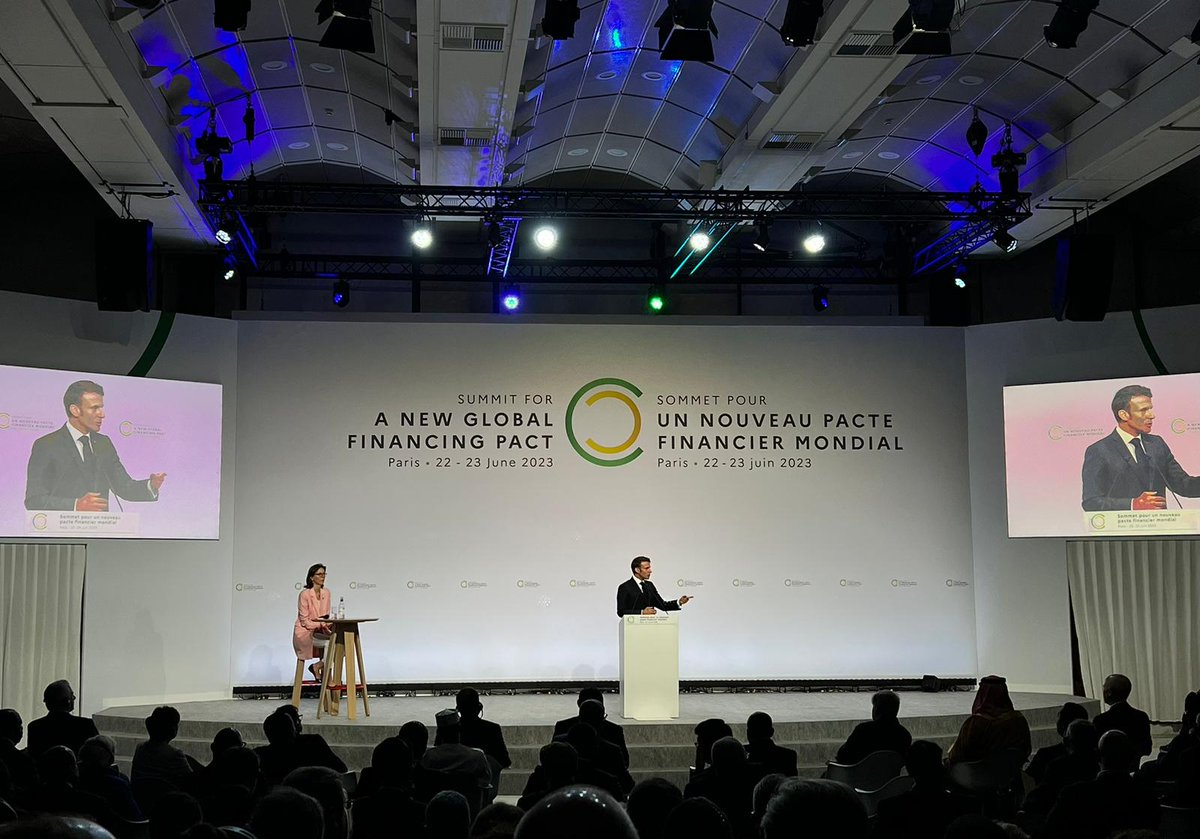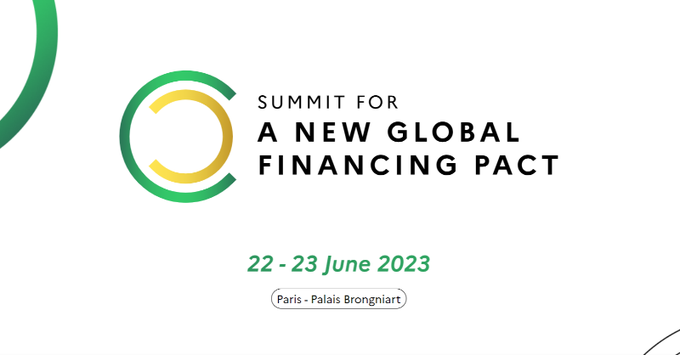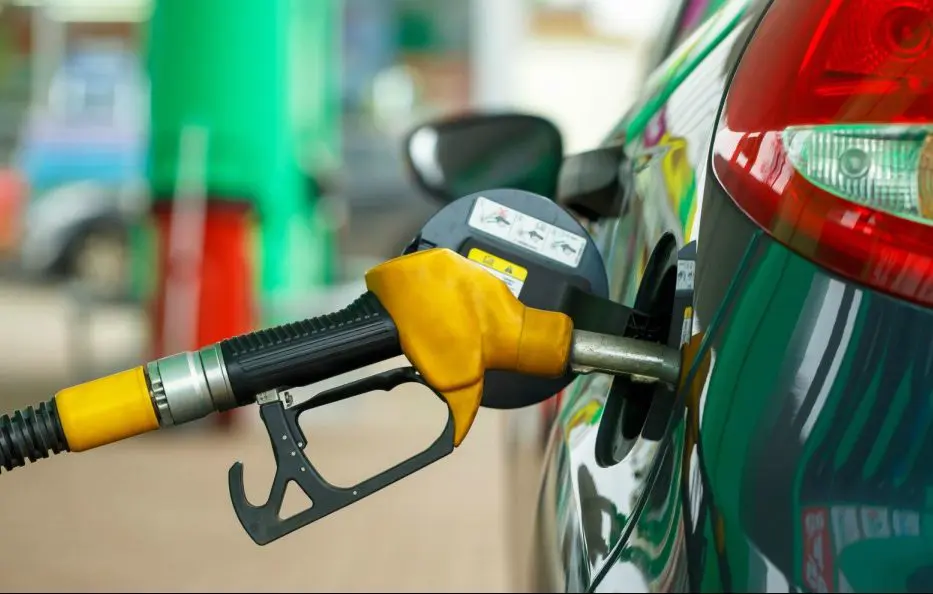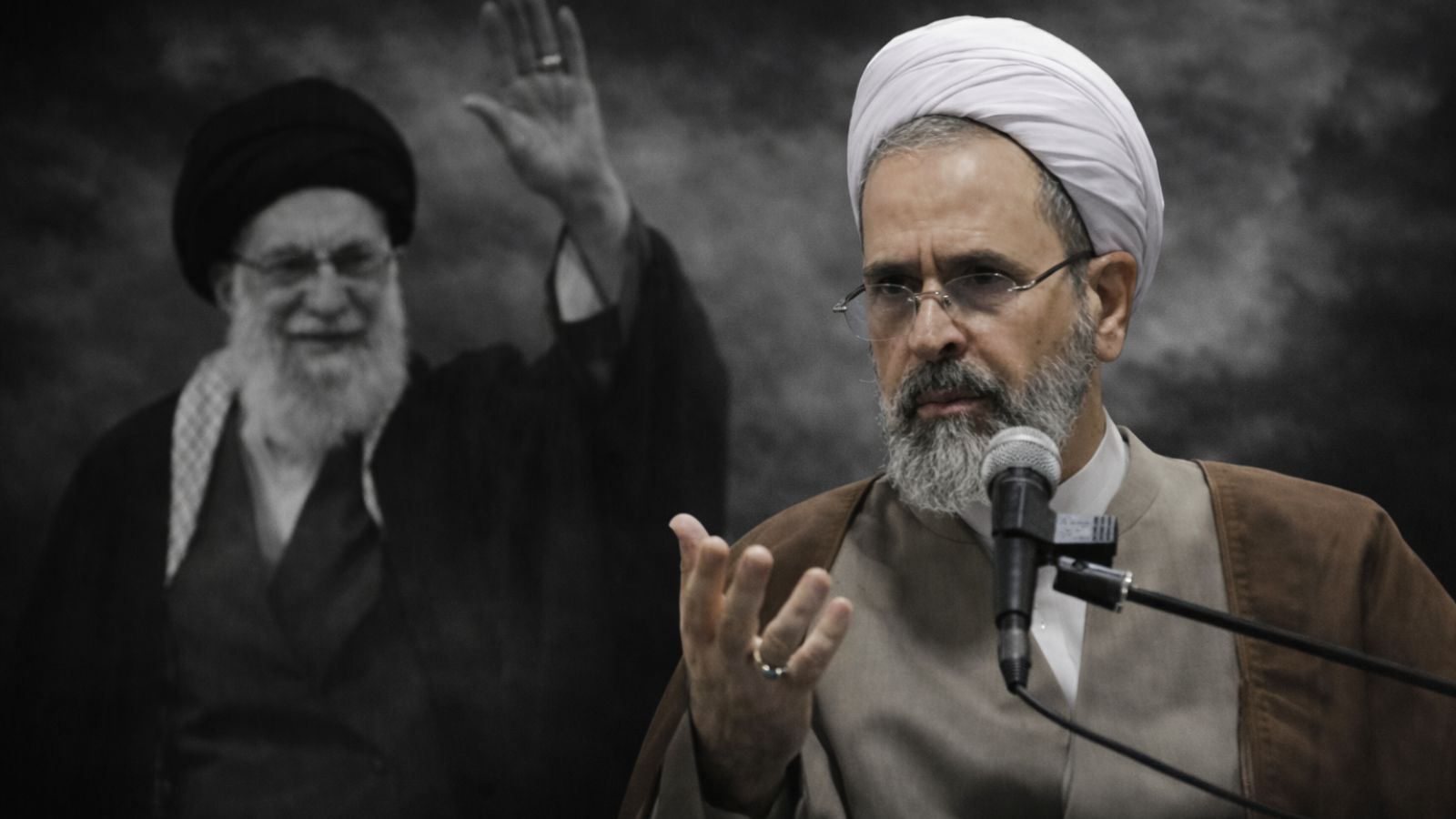World leaders call for reforms in global financial system
As the summit for a New Global Financing Pact opens in Paris, world leaders make a case for urgent reforms in the world’s financial architecture.
President Emmanuel Macron of France in his welcome remark noted that the existing financial system which is the result of a past consensus, was efficient in the past and brought assistance that was greatly needed. But it is no longer fully adaptive and that is why he proposed, last year, a new financial pact.
He said the summit in Paris is for all those facing the consequences of a deteriorating planet and to create a broad international consensus.
“..something that is carried forward by the people who are really living with the consequences of climate deregulation and who are fighting against poverty and its consequences.”
He noted that despite the success recorded in the previous year with various agreements, “we can see that inequalities are growing, we have seen that climate change vulnerability adds to the risk and our world is faced with multiple shocks.”
According to the French president, no decision-maker in a country should ever have to choose between reducing poverty and protecting the planet. However, a lot of decision-makers are forced to make this choice, he said.
The realities of today’s world call for the mobilisation of more funds and the reorganisation of global financial systems, he added.
However, each country has to follow a sovereign path and must be respected within the new pact: “the sovereignty of each country must be respected.”
“I do not think we can completely change our system but we can make it much better,” Mr Macron said.
He urged world leaders and organisations to better mobilise funds in a way that they reach the countries that need them, adding that the summit should be where solutions that will change the lives of people and countries around the world are found.
The Prime Minister of Barbados, Mia Mottley, said the summit is not to reinforce the divisions of the past but to identify the common humanity that we share and the absolute moral imperative to save our planet and to make it liveable.
Charging the crowd, she said it was important that the world move to action in light of the new realities. She noted that the summit was a summon to question if the world has the capacity and will to bring peace and scope to the problem.
She noted that the world is witnessing progress as many months ago no one was talking about natural disaster clauses or reforming multilateral development banks.
“… there is now the understanding that poverty and climate cannot be separated,” she said.
“I ask all of us today not to leave Paris without understanding that the bold stream of the political ambition that is required must secure transformation and not reforms.
She noted that this summit is not only for money but for the reform of the world’s systems because when these institutions (Brettonwwod) were founded, our countries did not exist.
After asking attendees of the summit to pay a minute of silence to lives that have been lost to the impact of climate change, Vannessa Nakate, a Ugandan climate activist, said a finance summit cannot happen without talking about fossil fuel, and talking about people who are affected by these fuels.
She noted that the world must make polluters pay, cancel debts, secure grants and climate finance to global south countries so that they are no longer forced to pay for a crisis they did not create.
“You must be thinking in trillions and not billions; you must help us get real loss and damage funds to flow to those communities who need it the most. We must remember that more fossil fuel means more loss and damage,” Ms Nakate said.
As you are considering a new financial pact, you must consider an equitable fossil fuel phase out in conjunction with an equitable renewable energy phase in, she added.
UN Chief Antonio Gutterres in his speech noted that the current global financial architecture is outdated, dysfunctional and unjust, hence the need for a New Global Financial Pact to take action to meet the urgent needs of developing countries.
About the summit
The two-day summit is being attended by more than 300 high-level participants, including about 39 Heads of State and Government, international organisations and representatives of civil society and the private sector. It aims to lay the groundwork for a renewed financial system suited to the common challenges of the 21st century, such as fighting inequalities and climate change and protecting biodiversity.
Also Read: France proposes new global financial system
The New Global Financial Pact will define the principles and measures needed to reform the financial system and tackle the high levels of debt that prevent governments from implementing ambitious action to reduce the climate, economic and technological divides that risk fragmenting our world.
It will also pave the way for new agreements to tackle over-indebtedness and allow more countries to access the financing they need to invest in sustainable development, better preserve nature, reduce emissions and protect populations against the ecological crisis, where it is most needed.














